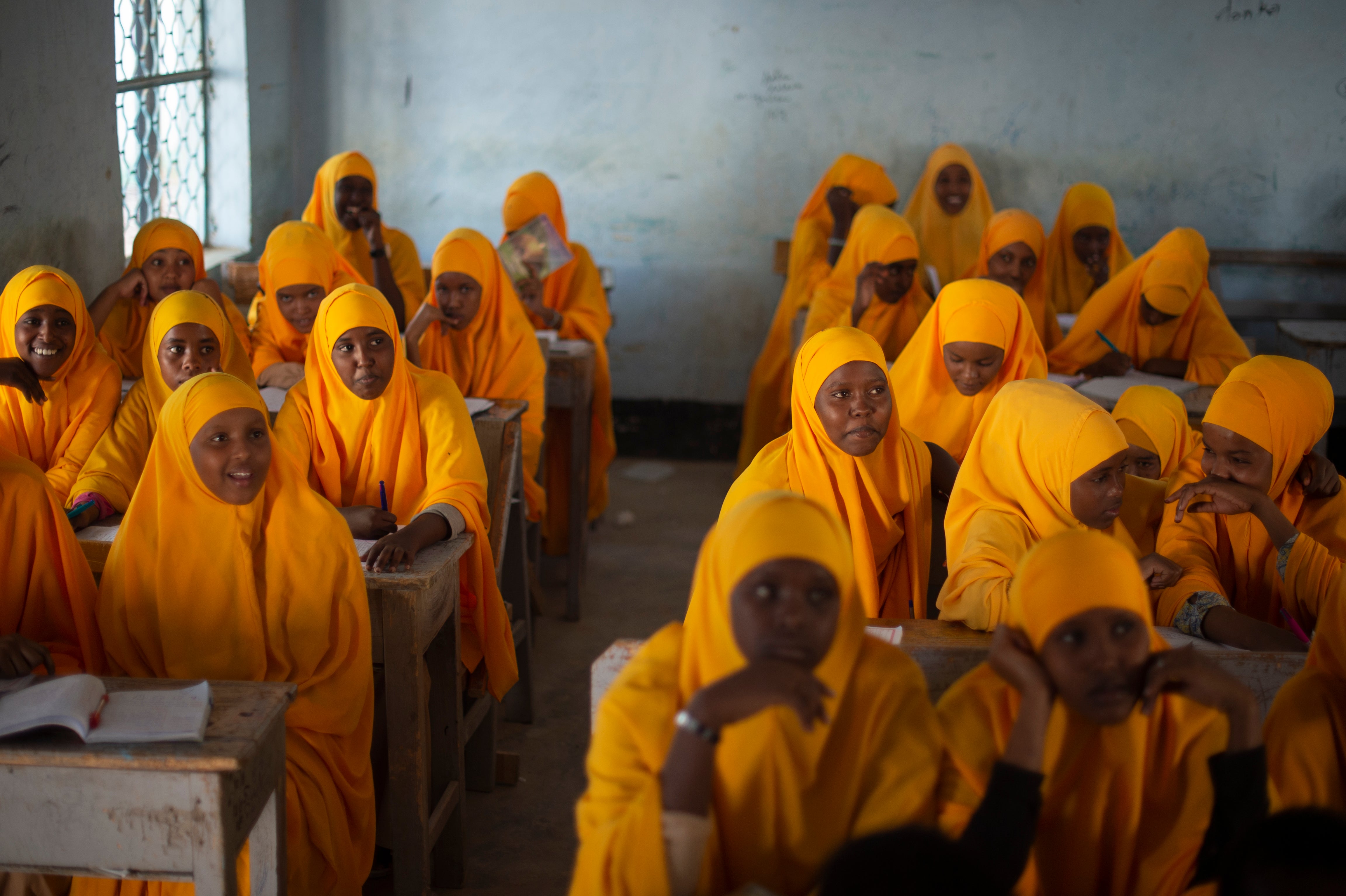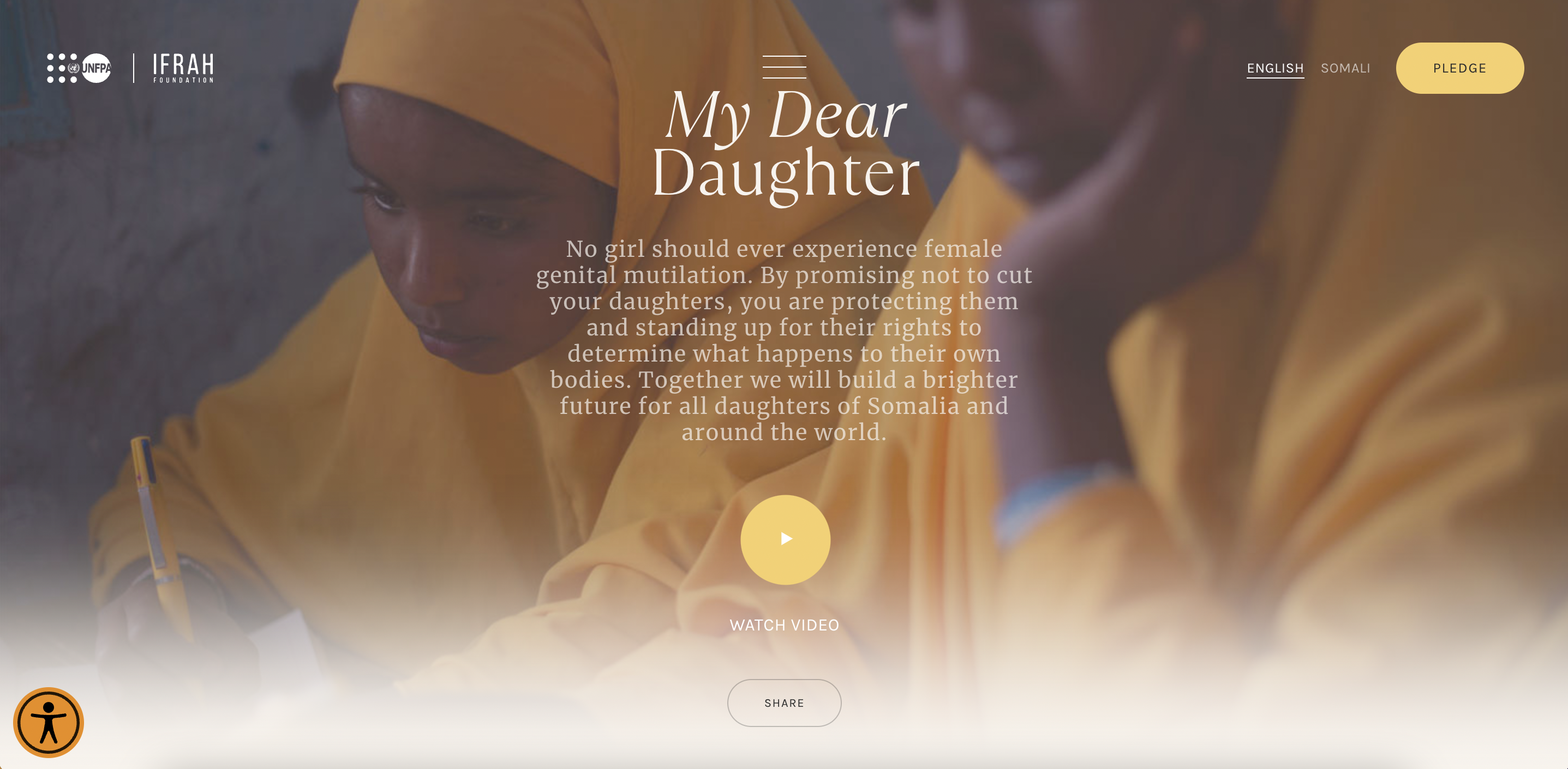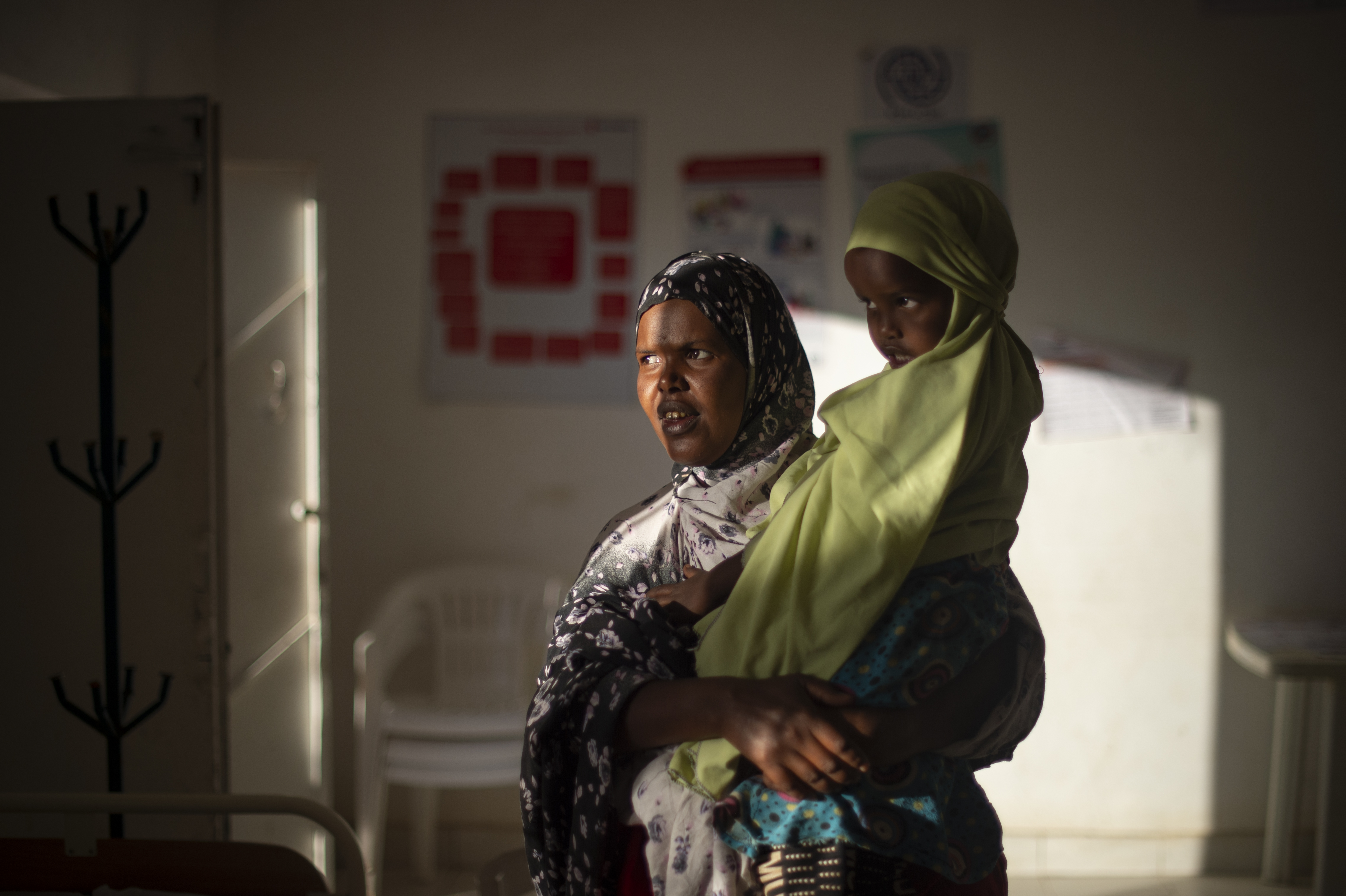About the Campaign

Female genital mutilation (FGM) refers to procedures involving partial or total removal of the female external genitalia or other injury to the female genital organs for non-medical reasons. Those subjected to FGM are at risk of infection, birth complications, haemorrhage and even death. They are also vulnerable to early marriage, dropping out of school, mental health disorders and reduced opportunities for growth, development and sustainable incomes.
According to the 2020 Somali Health and Demographic Survey, 99 per cent of women 15 - 49 in Somalia have been subjected to female genital mutilation, the majority between ages five and nine. The survey also reports that 72 per cent of women believe it is an Islamic requirement, though some religious leaders have said Islam condemns it. Recent estimates indicate that more than 2.1 million girls in Somalia are at risk of FGM between 2015 - 2030.
In Somalia, social drivers and root causes of FGM stem from gender inequality, including a desire to control female sexuality, support for religious narratives, limited access to education and economic opportunities for girls and women and assurance of girls' or women's social status, chastity or marriageability. The practice has persisted as a result of beliefs that uncut women and girls are promiscuous, unclean and physically undesirable.




